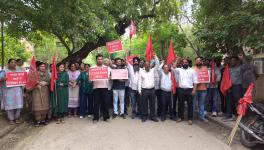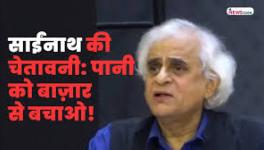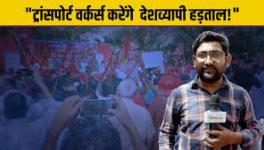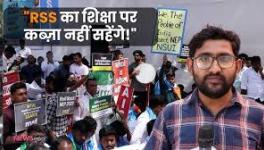Opposing Electricity Amendment Bill, Power Employees Hold Protest Meetings In Districts
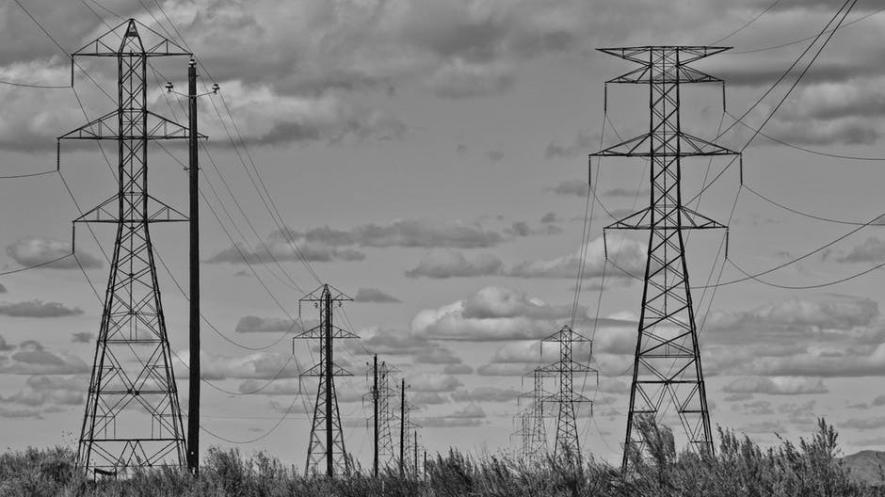
Power sector employees on December 13 held protest meetings and demonstrations at several districts of the country in the run-up to their two-day nationwide strike on January 8 and 9, 2019 — against the Electricity (Amendment) Bill, first introduced in 2014.
The demonstrations were held under the National Coordination Committee of Electricity Employees and Engineers (NCCOEEE), a joint platform of all unions and federations in the power sector.
The Electricity (Amendment) Bill — which is meant to amend the Electricity Act, 2003 — seeks to bifurcate the distribution function of the power sector into carriage (infrastructure) and the actual sale of electricity (content) to consumers.
It proposes that a government company shall lay down the wires or the distribution network that carries the electricity up to the consumer, while private companies will do the actual selling of the power.
The Bill also introduces multiple supply licensees who would be supplying electricity, so they would be competing over selling the power. But one of the supply licensees has to be a government-owned licensee, presumably to cater to the loss-making segments of consumers, such as rural households and farmers.
The move is meant to separate the more profitable aspects of distribution that can be taken over by the private players without them needing to make any investments, said Shailendra Dubey, chairman of the All India Power Engineers' Federation and convenor of the NCCOEEE, while speaking to Newsclick.
This essentially means that the profits will be privatised while the losses are nationalised.
“The Electricity (Amendment) Bill is likely to be introduced in Parliament in this winter session, and Power Minister RK Singh is bent on pushing it through,” he said.
Power employees have been opposing the Bill since it was first introduced. The latest 2018 avatar of the Bill introduces some other changes as well, such as the state-wise phasing out of subsidy, and cross-subsidy within three years, said Dubey.
“Today, protest meetings and demonstrations were held in nearly all states of the country. We have been mobilising support from not just the power employees, but also the consumers,” said Dubey, who had attended a protest meet in Lucknow, and was on his way to Pune for the same.
“This Bill is anti-people because the burden of increased prices after the distribution is privatised will be passed on to the consumers.”
He said that whenever the Bill is placed before the Parliament, all power employees of the country will go on a day-long flash strike. “More than over 1.5 million power employees will hold a token strike, and we are already observing a nationwide two-day strike in January next year.”
The other demands of the NCCOEEE include the reviewing of the impact of the Electricity Act, 2003.
The Electricity Act, 2003 had dismantled the State Electricity Boards (SEBs), and replaced them with three separate entities catering to generation, transmission and distribution.
The 2003 Act was following the World Bank model of “unbundling” of the power sector, so as to allow private players into the safer and more profitable aspects of generation.
The Act also brought in de-licensing for thermal power generation, to order to make it even easier for the private players.
This meant any private party could set up a thermal power plant, without requiring to obtain a licence first. As a result, a large number of private companies entered power generation.
The 2003 Act has supposedly led to the current crisis of mounting non-performing assets (NPAs) in the power sector.
The NCCOEEE is also demanding that power utilities rendering the functions of generation, transmission and distribution be integrated again, on the lines the Kerala State Electricity Board and the Himachal Pradesh State Electricity Board, which had resisted the trifurcation.
The other demands include Old Pension Scheme (OPS) for all power engineers and employees who joined after the unbundling of the SEBs, and are denied OPS. The power employees also demand regularisation of all contractual workers, and regular recruitment on all jobs of a regular nature.
“We will continue our struggle till the Amendment Bill is scrapped, and all our other demands are met. The government must scrap the Bill; that is non-negotiable,” said Dubey.
Get the latest reports & analysis with people's perspective on Protests, movements & deep analytical videos, discussions of the current affairs in your Telegram app. Subscribe to NewsClick's Telegram channel & get Real-Time updates on stories, as they get published on our website.














